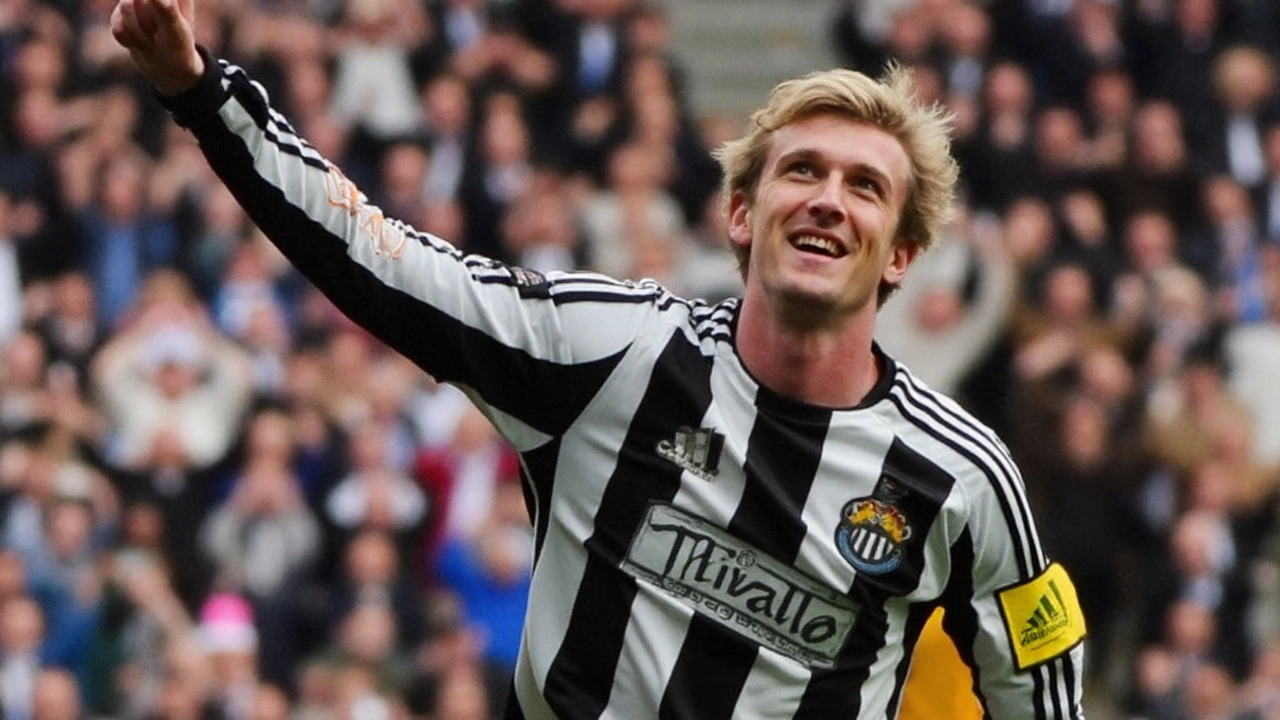Record fee, record pressure, one clean finish. Newcastle’s season finally sparked into life with a 1-0 win over Wolves because a new No 9 did exactly what he was bought to do. The debut belonged to Nick Woltemade, whose first-half header soothed nerves on Tyneside and, just as importantly, hinted that Eddie Howe might now have the penalty-box presence his attack has been missing.
It wasn’t a flawless afternoon. Newcastle raced out with intent, then spent long stretches after the break protecting what they had. But after three winless league games, the table doesn’t grade performances—only points. This was their first three of the campaign, earned by a striker who needed less than one match to show why he was the club’s record signing.
Woltemade’s instant impact
The goal was a textbook centre-forward action. The cross from Jacob Murphy asked a question; Woltemade supplied the answer. He checked his shoulder, slipped off his marker to find a pocket of air, and met the ball with timing rather than force. That slight hold of the run is what separated him from the pack. The header’s direction, not power, beat the goalkeeper, and the whole thing looked simple because the movement made it so.
The context matters. Woltemade arrived off a bruising international break with Germany, where results didn’t go his way and debate inevitably followed. Players can carry that noise. He didn’t. One clean chance, one clean strike. It reset the conversation in a stadium that appreciates strikers who attack the six-yard box and give defenders a decision to make on every cross.
What stands out about Woltemade is how he shapes the pitch. When he pins a centre-back, Newcastle’s wide players can take an extra touch before delivering. When he peels to the back post, full-backs hesitate, and the cutback lane opens for a late runner. You could see the knock-on effects as soon as Murphy and Harvey Barnes started to get the ball high and wide. The angles looked friendlier, the deliveries more purposeful, and the penalty area felt occupied rather than visited.
Beyond the finish, his off-ball work was practical: press the first pass after turnovers, set simple lay-offs, keep the centre-backs honest. It wasn’t flashy. It didn’t need to be. His presence gave Newcastle a reference point, which is exactly what their attacks lacked in those stop-start opening weeks.
Murphy deserves a nod here. His cross had the kind of shape that tells a striker where to go before the ball even leaves the boot—fast enough to attack, curved enough to keep the goalkeeper in his goal. Newcastle have had games where territory didn’t convert into chances because the final action wasn’t clean. This one was.
The upshot: Howe’s summer rebuild suddenly looks more connected. When the No 9 provides a target, the rest of the front line can play with less haste. Barnes attacked inside-to-out lanes. Tino Livramento supported on the overlap with real purpose. The first 45 minutes felt like a sketch of what Howe wants this season to be: aggressive, vertical, and tidy in the box.
Then came the second half, which told a different story. Newcastle’s press lost a yard, the passing got a touch safer, and Wolves found paths into the final third. It wasn’t a siege, but it was anxious enough to keep the crowd on its toes. Newcastle needed the back line to win first balls and the midfield to sweep up the seconds. They mostly did, but they also left the door ajar by failing to score a second.
That’s the lesson inside the result. You can dominate phases, but if you don’t finish moments, the last 15 minutes can get long. Barnes flashed one just over, and there were two or three half-breaks that died on the final pass. Add one more goal, and you walk this one home. As it was, Newcastle had to grind.
Wolves left with frustration and a sense of what might have been. Missing their focal point up top—Stan Lawson was unavailable—they built well through midfield but lacked a bully in the box. The visitors pushed late, shuffled the ball wide, and sent plenty into the mixer. The deliveries were decent; the finish wasn’t there. Their best spells came when they dragged Newcastle into wide defensive duels and tried to flood the back post. It made for pressure, not panic.
Credit Newcastle’s back half for that. The spacing in rest defense—the two or three players left behind the ball when attacking—was more disciplined than in previous outings. When Wolves broke, the recovery runs were straight and aggressive, not hopeful arcs. That matters, especially on days when the attack dries up after the hour mark.
Howe trimmed risk as the game wore on. The full-backs picked their moments. The midfield chose security-first passes in zones where turnovers can be fatal. It’s not pretty, but every team with European goals needs that gear: the ability to manage a one-goal lead without inviting chaos.
There were promising micro-moments in attack too. Barnes’ curling effort that grazed the bar came from a neat rotation with Livramento—one goes outside, the other fills the half-space. Those are repeatable patterns, and teams that repeat patterns tend to create steady chances over a season. Murphy, meanwhile, kept making that back-post run that stretches a back line even when he doesn’t get the ball. You can build a season on those habits.
So what does the win actually tell us? First, Newcastle now have a striker who lives in the penalty area and turns decent crosses into high-quality chances. Second, the team can bank points even when the second half gets scrappy. Third, the chemistry between the wingers and full-backs is trending up, even if it’s not fully baked yet. All three are good signs this early in the campaign.
But yes, there’s still a to-do list. The midfield needs to keep the tempo high after the break. The transitions from attack to defense have to stay tight for 90, not 55. The set-piece output, with that size up front, should be a weapon every week. This was a step—an important one—not the finished article.

Barcelona on the horizon: what this win does—and doesn’t—prove
The question after full time floated around the concourse: does this translate to a Barcelona-level test? The honest answer is: partly. A possession-dominant opponent will stress you in ways Wolves didn’t. The press has to be cleaner, and ball retention in the first pass after regains has to be sharper. Give the ball back cheaply against that caliber, and you spend the night chasing.
What carries over, though, is structure. With Woltemade up top, Newcastle can go long to escape pressure and still build second phases. That’s insurance against being trapped. Wide patterns—Murphy’s early cross, Barnes attacking the far stick, Livramento overlapping—also travel well. If you can force Barcelona’s full-backs to defend their own box, you break their rhythm.
Here’s the readiness checklist that Saturday underlined:
- First pass after a turnover: keep it. One secure touch turns a clearance into a counter.
- Front-to-back distances: stay compact. If the lines stretch, the press dies and gaps appear between midfield and defense.
- Set pieces: commit. With aerial size now in the XI, these should produce shots every match.
- Game state control: when one up, keep threatening the second. Sitting off invites wave after wave against elite sides.
- Bench impact: fresh legs must raise the press, not just run down the clock.
Newcastle showed three things that will matter in Europe: they can set a tone early, they can create off rehearsed wide patterns, and they can defend penalty-area crosses under stress. What they didn’t show yet is the 75-minute stranglehold you need to put top teams away or at least mute them. That’s the next evolution.
Personnel-wise, Howe’s choices tracked with the game plan. A natural-width right winger gave the new No 9 service. Barnes’ inverted starting point invited overlaps and back-post overloads. The double pivot in front of the defense stayed connected, especially in the first half, which let Newcastle trap Wolves along the touchline and spring attacks from there. When the legs faded, the distances grew, and so did Wolves’ confidence. That’s solvable with sharper timing and maybe one earlier change to restore bite in midfield.
Tactically, there’s a lot to like. Woltemade gives you three game plans in one: you can cross early, you can play into feet and bounce, and you can hit diagonals to the back post. He also makes defenders turn toward their own goal, which is when mistakes happen. If he keeps occupying centre-backs this way, Newcastle’s wide men will cash in even when he doesn’t score.
Wolves deserve a word. Depleted up front, they still forced Newcastle to answer questions late. They targeted the channels, especially when Newcastle’s full-backs sat deep, and loaded the far post. It was disciplined, if blunt. Give them their missing striker and a touch more calm on the final action, and they take points from games like this.
For Newcastle, the intangible was just as big: the mood. St. James’ Park had been waiting for a spark, and the new signing supplied it. Pressure can make a team either twitchy or sharper. On Saturday, it locked them in for 45 minutes, then asked them to fight. They did both. That’s the foundation you want before a marquee European night—whenever it lands and whoever stands across from you.
So, are they ready for Barcelona? Ready to compete, yes. Ready to control? Not yet. But they don’t need to be perfect to be dangerous. They need to be clear about who they are: quick to the front, ruthless from wide areas, compact without the ball, and confident that one goal can become two. With a striker who turns crosses into certainty, that identity suddenly looks a lot more believable.
Three points, a debut goal, and a plan that finally has a focal point. Newcastle have liftoff at the fourth attempt. The next step is keeping the throttle down for more than just a half.
Key takeaways:
- Woltemade’s movement, not just size, unlocked the winning header—and Newcastle’s attacking shape.
- The first half showed Howe’s template; the second half showed the game management they’ll need in Europe.
- Wolves lacked a finisher without Stan Lawson but asked late questions from wide areas.
- To pass a Barcelona-level test, Newcastle must improve the first pass after regains and keep chasing a second goal.
